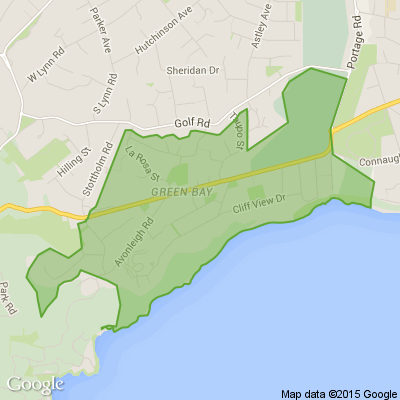The problem with Climate Change …
Most of the Climate Change criticism is based on the fact that CO2 levels were MUCH higher in the past. That is absolutely correct.
And completely misses the point.
Throughout most of the Earth’s history, carbon dioxide levels have generally changed very slowly. That gave organisms and their ecosystems sufficient time to adapt to climate change through both evolution and migration.
Most of the change from 280 ppm to 421 in 2022 happened in less than 200 years. The present atmospheric concentration of CO2 is the highest for 14 million years.
To put that into context: 14 Million years is longer than it took for apes and humans to evolve from monkeys. Do you think humans would have been able to evolve in just 200 years?
To put the problem into an easily understood picture:
Imagine I throw a tiny lead ball at you. Are you afraid?
Now imagine I use a gun to shoot that lead ball at you - THAT is Climate Change.
If you understand the difference SPEED makes, then you start to understand the threat that climate change is.
Many plants and animals are unable to cope with the rapid change - we are already knee deep in a mass extinction that rivals the extinction of the dinosaurs.
Many of us can see that for themselves. When I was a kid windscreens used to be splattered with insects, and every 100 km you had to stop at a petrol station to clean the windows.
But not anymore.
Insect numbers have plummeted by up to 96% in places - not only in industrialised nations but even in “untouched” areas like the Costa Rican rain forest. The importance and effect of pollinators disappearing should not be under-estimated.
The biggest effects of global heating are currently felt at the BOTTOM of the food pyramid (eg the take up of CO2 into the oceans leads to acidification that makes building skeletons from dissolved Calcium carbonate near impossible), and the effects will not propagate gradually and slowly up the chain but suddenly and catastrophically when you reached the tipping point.
Because the ability of the ecosystems to compensate is being steadily eroded (from multiple sides, eg pollution, exploitation, etc), and while it takes a few hundred years for the changes to reach a tipping point, when it tips EVERYTHING depending on it tips too.
Most plants and animals will come up with new varieties that might be able to cope better - but that doesn’t prevent a population collapse, it just means the species might be able to rebuild and still be around in a few thousand years.
But for many species this will not be enough - because as a population they depend on a plentiful supply of other species for food.
The food we eat is produced in dirt that developed into fertile soil over sometimes tens of thousands of years. Alluvial plains for example. The most productive areas are coastal areas. Which is a small percentage of land area. Where do you get your food when these areas become too dry / wet / hot / cold / unstable / submerged for agriculture?
So the question for most humans will be: “Would you mind not eating for a few thousand years?"
Will Humans survive?
Humans - yes.
Humanity - doubtful.
Because it is just a question of WHEN, not IF, the human population will collapse like the environment they depend on around them.
And you can have faith that humans will react to the problem like this:

🏠 Save $75 on Our Thorough 4-in-1 Window Cleaning Service!
Hello neighbours! Want to rejuvenate your home's view? At WashBros, we're offering a special $75 discount on our 4-in-1 window cleaning service, exclusively for our local neighbourhoods. This comprehensive package includes cleaning of windows, frames, tracks, and sills, ensuring your views are impeccably clear and clean. Don’t miss out—book your service today and mention this post to claim your discount! Offer valid for a limited time – let’s make our community shine, one detail at a time.
Best way to use leftovers?
I'm sure you've got some excess ham at home or cold roast potatoes.
What are some of your favourite ways to use leftover food from Christmas day? Share below.

⚠️ DOGS DIE IN HOT CARS. If you love them, don't leave them. ⚠️
It's a message we share time and time again, and this year, we're calling on you to help us spread that message further.
Did you know that calls to SPCA about dogs left inside hot cars made up a whopping 11% of all welfare calls last summer? This is a completely preventable issue, and one which is causing hundreds of dogs (often loved pets) to suffer.
Here are some quick facts to share with the dog owners in your life:
👉 The temperature inside a car can heat to over 50°C in less than 15 minutes.
👉 Parking in the shade and cracking windows does little to help on a warm day. Dogs rely on panting to keep cool, which they can't do in a hot car.
👉 This puts dogs at a high risk of heatstroke - a serious condition for dogs, with a mortality rate between 39%-50%.
👉 It is an offence under the Animal Welfare Act to leave a dog in a hot vehicle if they are showing signs of heat stress. You can be fined, and prosecuted.
SPCA has created downloadable resources to help you spread the message even further. Posters, a flyer, and a social media tile can be downloaded from our website here: www.spca.nz...
We encourage you to use these - and ask your local businesses to display the posters if they can. Flyers can be kept in your car and handed out as needed.
This is a community problem, and one we cannot solve alone. Help us to prevent more tragedies this summer by sharing this post.
On behalf of the animals - thank you ❤️










 Loading…
Loading…